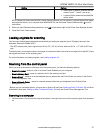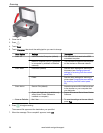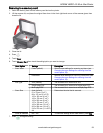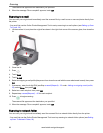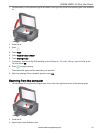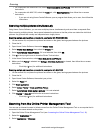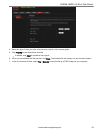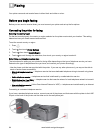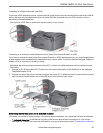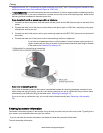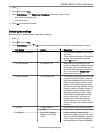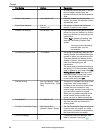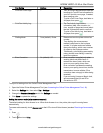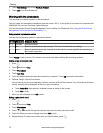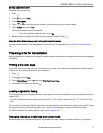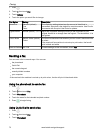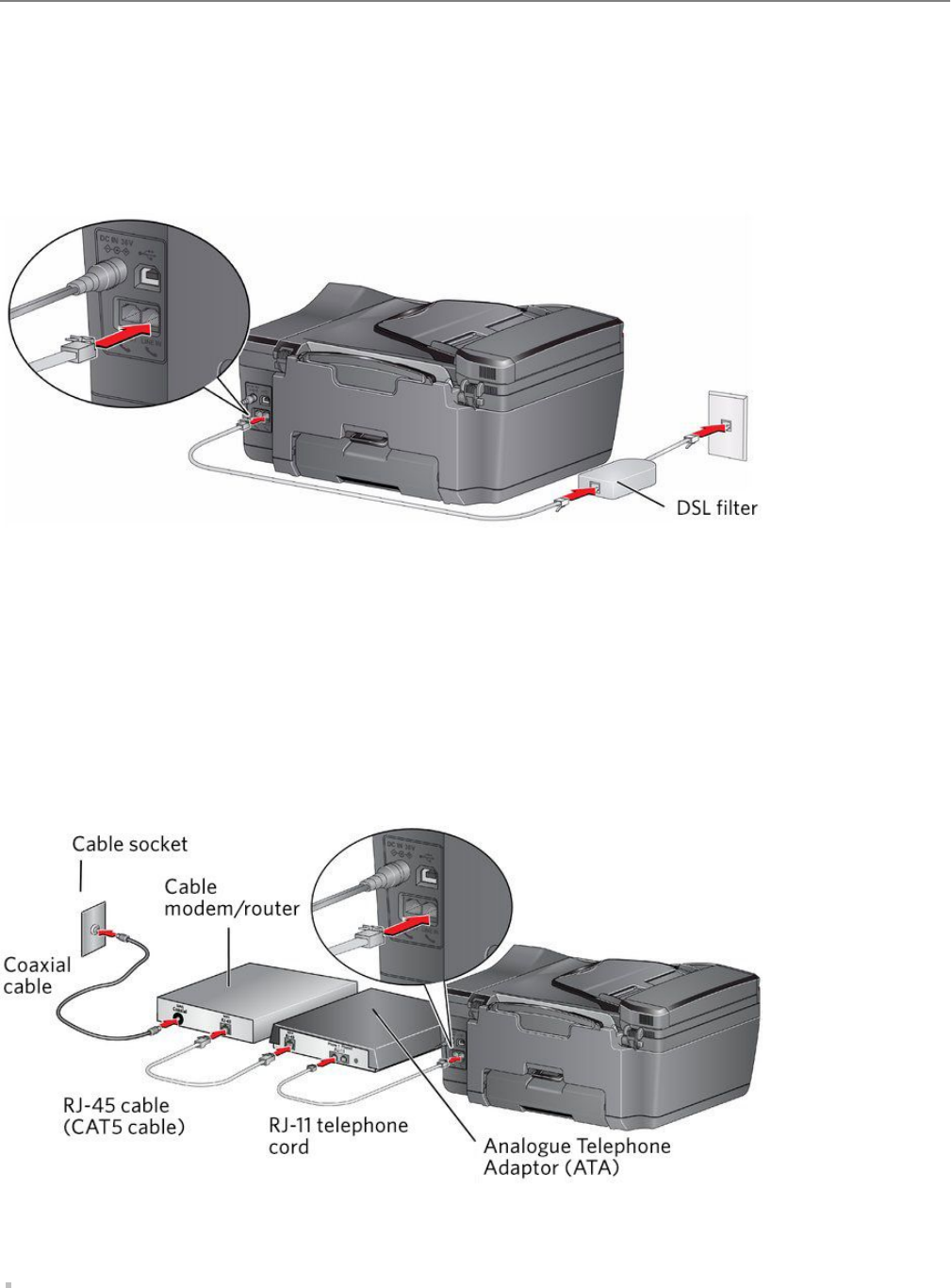
Connecting to a Digital Subscriber Line (DSL)
If you have a DSL telephone service, connect one end of the phone cord that came with the printer to the LINE IN
port on the back of the printer and the other end to the DSL filter (available from your DSL provider), which is
connected to the wall phone jack.
: You must use a DSL filter to transmit fax signals properly to your printer.
Connecting to an Internet or cable telephone service (Voice-Over-Internet Protocol or VOIP)
If you have an Internet or cable (Voice-Over-Internet Protocol or VOIP) telephone service, you should already have
a cable modem/router connected to the cable socket with a coaxial cable. You will also need an Analogue Telephone
Adaptor (ATA) to connect your printer for faxing.
: Sometimes the cable modem/router has a built-in ATA. Contact your cable telephone service provider for more
information.
1. Connect an RJ-45 (also called CAT 5) cable from the cable modem/router to the WAN port on the Analogue
Telephone Adaptor (ATA).
2. Connect one end of the phone cord that came with the printer (RJ-11 telephone cord) to one of the phone input
ports on the ATA and the other end to the LINE IN port on the back of your printer.
Determining whether your phone line is dedicated or shared
To connect your printer for faxing correctly, you need to determine whether your phone line is shared or dedicated.
A dedicated phone line is one that has
only this printer
and no other devices connected to it. If you have a
dedicated line, connect your printer as described for your type of phone service (see Connecting to a standard
KODAK HERO 4.2 All-in-One Printer
www.kodak.com/go/aiosupport 65



